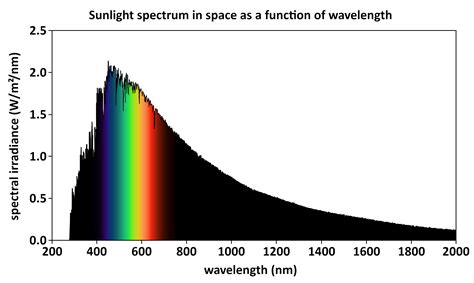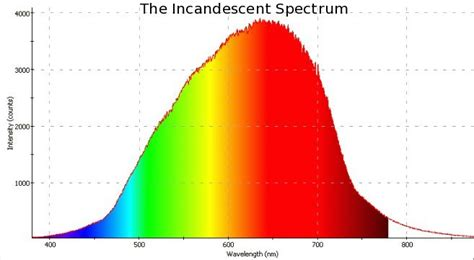How to buy the right red-light device
-
What are some of the specs that you gotta look for when buying a red light device?
The price range between the cheap and expensive options is wild. Can I just buy the cheap stuff or is it mostly useless?
As for specs:
Do you prefer LED or incandescent?
Do you target a specific light spectrum?
Do you target a specific power density (mW/cm²)?
Should the glass be red-coated or transparent?
Do you prefer lightbulbs, panels or those gadgets that apply direct contact to the skin? -
I checked Amazon for a good one. Read the reviews etc.
Then I bought the exact same one from AliExpress for less than half of the price. The only difference was the brand name they had added on the Amazon one. Even the description was mostly copied. -
redlightman
sometimes it's good to research and deep dive and find the right vendor for yourself
sometimes one already is in business and you can save yourself the effort
redlightman even accepts crypto -
@the_black_jew said in How to buy the right red-light device:
redlightman
sometimes it's good to research and deep dive and find the right vendor for yourself
sometimes one already is in business and you can save yourself the effort
redlightman even accepts cryptoscam like every one of these people!clear 250w incandescent bulbs are like 5 dollars. all that you need.
-
@CO3 you're literally a communist
-
@CO3 said in How to buy the right red-light device:
scam like every one of these people!clear 250w incandescent bulbs are like 5 dollars. all that you need.
Common incandescent bulbs would be preferable imo to the coated, colored infrared incandescent light bulbs which are the worst, as they do not penetrate nicely but due to their spectrum heat up water very strongly. Which is not a good thing. And not relaxing. And uneven. And a way too bad heat gradient throughout the skin and tissue. And actually a danger for the eyesight because of the latter.
All of which is why in the early 20th century researchers and practitioners in light-therapy went through lots of efforts of developing and setting up various apparatuses with the radiation from the light bulbs first filtered through double layers of water-filled glass screens etc.
The red light LEDs at 650-670 or near-infrared lights at 830-850nm are way safer and more convenient.
The infrared incandescent lights are only pleasant if never directly looked into and if at a big enough distance, i.e. an evenly irradiated field (notice how poultry rarely stay in the inner focus zone of their much too closely hung brooder lamps?).
Of course in contrast to real sunlight all of these lack the important little bit of UV-spectrum for peripheral breakdown of pituitary stress hormones.
Although I would like to know more specifically which spectra and conditions contribute to the latter and to what extent. -
@oliveoil said in How to buy the right red-light device:
What are some of the specs that you gotta look for when buying a red light device?
Which wavelength?
*) Going by the studies on wavelength effectiveness (T. Karu et al.) (1), our cells absorb and use 4 "peaks" of light better than the others: 620 nm, 670 nm, 760 nm and 830 nm, +/- 15 nm. Those are the wavelengths you should try to get.- https://www.ncbi.nlm.nih.gov/pubmed/16144476
Reference: https://theskincareedit.com/2018/05/18/red-light-therapy-at-home
*) 830-840nm is for deep therapy (like pancreas and thyroid gland)
https://raypeatforum.com/community/threads/red-light-therapy-lllt-cures-hypothyroid.6815/
650 is for surface skin problems
=> Wavelength 670nm is the nearest.
*) Useful info
Between 0.1J/cm² to 6J/cm² is optimal for most tissues.
What dose should I aim for?
Most review articles and educational material tends to claim a dose in the range of 0.1J/cm² to 6J/cm² is optimal for cells, with less doing nothing and much more cancelling out the benefits a (too long time brings Nitric Oxide).
Distance of the light source is crucially important here, as it determines the light power density hitting the skin. For example, using the Red Light Device at 25cm instead of 10cm would increase the application time required but cover a larger area of skin. There’s nothing wrong with using it from further away, just be sure to compensate by increasing application time.
*) Way to calculate
Summary for formula: Dose = Power Density x Time in sec. x 0.001
Between 0.1J/cm² to 6J/cm² is optimal for most tissues.
Let’s take an example:
Suppose the power density between 50 and 100 W/cm2
Let’s say 85 W/cm2 at 15 cm distance.
=> Power Density x Time = Dose
+/ 85 W/cm2 x 100 Sec. = 8500 x 0.001 = 8.5 J/cm2 => Too high.
85 W/cm2 x 60 Sec. = 5100 x 0.001 = 5.1 J/cm2 => OK.
=> Between +/ 60 and 90’’ at 15 cm.
*) Abbreviations
Power Density (irradiance) in mW/cm² (milliwatts per centimeter squared)
Time in s (seconds)
Dose in J/cm² (Joules per centimeter squared)
*) My choice: Red Light man (RLM)
For Red/IR Combo Mini: 620 - 670 - 760 - 830 nm wavelength.
NB: Between 20 and 200 W/cm2 according to the distance, for RLM.
200 W/cm2 at 5 cm distance
100 W/cm2 at 10 cm distance
50 W/cm2 at 30 cm distance
25 W/cm2 at 55 cm distance
10 W/cm2 at 90 cm distance
*) Another example- Let’s suppose the power 50 W/cm2 at 30 cm distance. Which time?
50 W/cm2 x 120 sec. = 6000 x 0.001 = 6 J/cm2 => OK
50 W/cm2 x 60 sec. = 3000 x 0.001 = 3 J/cm2 => OK
NB: Remember: between 0.1J/cm² to 6J/cm² is optimal for most tissues. The distance impacts the radiance (the extent of the irradiated surface).
Conclusion: 60 to 120 seconds at 30 cm distance. No longer.
- https://www.ncbi.nlm.nih.gov/pubmed/16144476
-
@the_black_jew said in How to buy the right red-light device:
redlightman
sometimes it's good to research and deep dive and find the right vendor for yourself
sometimes one already is in business and you can save yourself the effort
redlightman even accepts cryptoI bought a device from redlightman. It's expensive, but I bought it almost exactly seven years ago to the day (just before Christmas 2017) and there are still no signs of wear and tear. So if I take the price in relation to the service life or the number of applications, we are talking about a minimal price.
I also bought some of the cheap heat lamp you can get at amazon years/decades ago. Don't even really know what they are, but I think it's just a heat lamp with a red-colored bulb. I had positive effects with these heat lamps regarding acne when I was in my early twenties. The warmth also feels pleasant. The durability wasn't as good, though. So the low price is relative.
The device from rlm is way more intense. I noticed this when I used it like the heat lamps, 15 minutes at a time or even longer. At times I felt a little shaky afterwards, almost like low blood-sugar and lowered energy. I realized that using a strong device like that is almost like a form of exercise. You have to ensure that you have enough fuel in the system and that you don't overdo it. Just like with exercise, sauna etc. When I pay attention to this, I can definitely see positive outcomes (better skin quality, more energy, better metabolism).
-
@the_black_jew IDK who you are but I can guess your politics are basically non-existent. You will say maybe on certain days "I'm a fascist" but even that has very little connection to your real beliefs or orientations, and absolutely nothing to do with your (lack of) reading. It's simply not something you have looked into, Go buy your 2000 dollar LEDs retard, you're the perfect audience for these scams.
-
@CO3 xDDDD
-
Has someone bought a telescopic or foldable leg (support) when you don't want to lie under the bulb on the ground? On amazon, preferable, for export.
I have the red light man bulb with a wired extension. Thanks. -
I use the regular incandescent 250w light bulbs but im interested in buying a dedicated red light. Anyone has any recommendations? I've heard of redlightman, helios and emr-tek.
-
@heyman
I can recommend redlightman. My device is almost 8 years old now and there are no visible signs of wear and tear. It's expensive when you look at the total price, but when I factor in usage, I'm probably at around $0.10 per application by now.This is the device I bought, with a combination of four wavelengths:
https://redlightman.com/product/red-infrared-combo-light/Although the device looks different now, the bulb is way bigger. So I can't guarantee that it's still high quality, but I give redlightman the benefit of the doubt.
-
@Luke What do you think of this bad boy?
-
@Luke pretty sure thats the one I have too and it's awesome, I've dropped it a bunch of times and it is fine.
-
@sunsunsun What improvements do you notice about it?
-
@heyman I use it sometimes for muscle soreness , other inflammations etc and it knocks it out fast
in winter shining it on neck / thyroid for 3-5 min is decent replacement for daily intense sunlight
sometimes when working at desk I prop it on desk to the side so it indirectly shines in eyes, seem like it is good for eye strain prevention
at halloween it makes nice creepy light
-
@sunsunsun What difference is it from an incandescent 250w bulb?
-
@heyman it’s red
-
@heyman said in How to buy the right red-light device:
@sunsunsun What difference is it from an incandescent 250w bulb?
Sunlight contains red light and a whole lot more.

The sunlight spectrum extends far into the infrared range and it is the infrared portion of the spectrum that produces heat. Incandescent light also contains portions of the infrared spectrum but it has much less blue light.

As far as I know, all LEDs contain a large amount of blue. The people who sell red LEDs cleverly neglect to show you the blue portion of the spectrum so you are left in the dark about the amount blue they emit.
Dr. Peat liked incandescent light. He liked the spectrum produced from running 130 volt incandescent bulbs in a 120 volt system. That is what influenced me to purchase this pool light in 2016. It is still buring brightly today.
https://www.amazon.com/dp/B004DJ5TMS?ref_=ppx_hzsearch_conn_dt_b_fed_asin_title_8